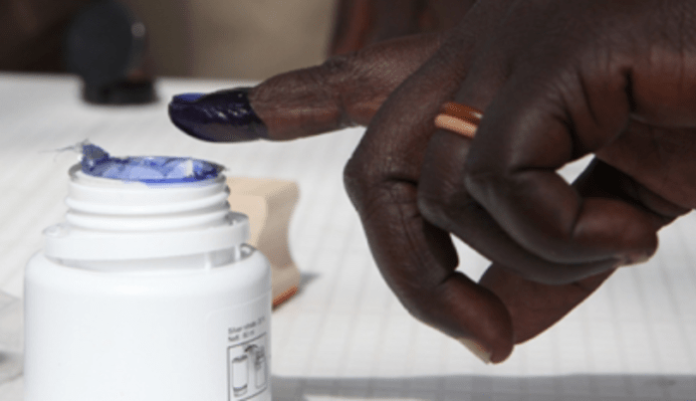The Electoral Commission (EC) says it has abandoned its decision to eliminate the use of indelible ink in this year’s elections.
This follows numerous objections to the proposal by Ghanaians and the various political parties.
Speaking during the launch of the Multimedia Group’s 2024 Election Coverage, the Deputy Electoral Commissioner in charge of Corporate Services, Dr Eric Asare Bossman said the decision was necessary in building trust and consensus ahead of the December polls.
“After listening to the discussions, we have heard the concerns of the general public, we have heard the parliamentarians, we have heard the concerns of the NPP and the NDC and civil society members so we have concluded that if by using the ink people will have more trust in the process, why not…” he said.
Earlier, the Minority caucus in Parliament had accused the Electoral Commission (EC) of breaching the constitution by abandoning the use of indelible ink in the upcoming elections.
Speaking on the floor of parliament, the First Deputy Minority Whip, Ahmed Ibrahim and Member of Parliament for South Dayi, Rockson Nelson Dafeamekpor said the action by the EC contravenes the regulation passed by Parliament for the effective performance of its functions.
“The issue of the non-use of the indelible ink breaches the law…Mr Speaker, you cannot come to Parliament with an instrument where protocols have been outlined and you as an administrative fiat decide that you won’t go according to the protocol.
“The use of indelible ink is part of the regulations that we put in the instrument for the effective performance of the Electoral Commissioner so, you cannot decide that you would not apply it. She must do things that will help her perform effectively,” the two NDC MPs had argued.
But EC chair, Jean Mensa, had insisted that prudent measures have been put in place by the Commission to improve the electoral process and ensure a robust identification system.
Madam Mensa explained that the adoption of biometric technology has made it challenging for individuals to vote more than once.
According to her, once a voter has been verified and cast their vote, the system registers the information, preventing any attempts at double voting.
This explanation was however rejected by the opposition NDC with some calling on the EC to reconsider the proposal.
But backing the stance by EC Chair, Dr Eric Asare Bossman said the EC was aiming to avoid double verification in the general elections.
“Last year we noted that we thought when you look at the procedures in our elections the idea of using the indelible ink is like you are using two layers for verification.
“So the Commission said if Mr. Evans Mensah is coming to vote, then Mr Evans Mensah will be verified electronically for us to know that indeed Mr Mensah has been verified so when you want to go ahead to use the indelible ink then clearly you don’t have confidence in your biometric register so as a result of that we suggested that it will be better if we do away with the ink,” he explained.

